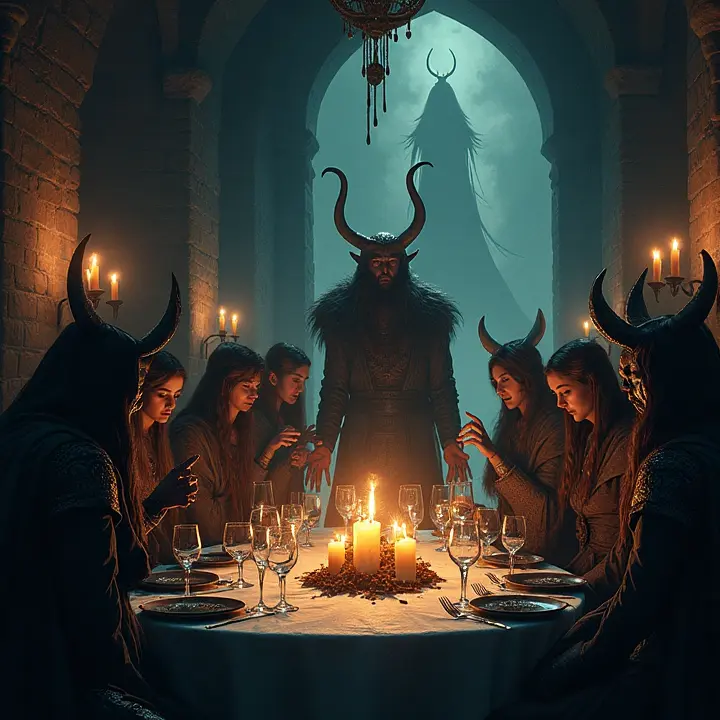Friday the 13th is a day that strikes fear into the hearts of many. The mere mention of it can send shivers down the spine, and it’s all because of the long-standing superstition that this particular date is unlucky. But where did this belief come from, and are there any real Horror Stories that have contributed to its dark reputation?
The origins of the Friday the 13th superstition are shrouded in mystery, but one of the most widely accepted theories traces back to ancient Norse mythology. According to legend, the god Loki, who was known for his mischievous and often malevolent nature, was the 13th guest to arrive at a banquet of the gods. His presence caused the death of Balder, the god of light and joy, plunging the world into darkness. This tale has been passed down through generations, and the number 13 has since been associated with bad luck and misfortune.
Another contributing factor to the Friday the 13th superstition is the historical significance of Fridays. In Christian tradition, Friday is considered an unlucky day because it is believed to be the day when Jesus Christ was crucified. Combining this with the already ominous number 13 creates a double dose of bad luck, at least in the eyes of the superstitious.
But it’s not just ancient myths and religious beliefs that have fueled the fear of Friday the 13th. There are several real-life Horror Stories that have added to its sinister reputation. One such tale dates back to the early 20th century. On Friday, October 13, 1972, a plane carrying a rugby team crashed in the Andes Mountains. The survivors were stranded in the freezing cold for over two months, and in order to survive, they were forced to resort to cannibalism. This harrowing story, known as the Andes Flight Disaster, is a chilling reminder of the potential horrors that can befall people on this supposedly unlucky day.
Another real horror story involves a series of tragic accidents that occurred on Friday the 13th. In 1923, a ship named the “Friday the 13th” was launched on, you guessed it, Friday the 13th. The ship was doomed from the start, and it soon disappeared without a trace. Years later, its wreckage was discovered, but no survivors were ever found. This incident only served to reinforce the belief that Friday the 13th is a day when disaster is more likely to strike.
In the world of finance, Friday the 13th has also been associated with some major crashes. On October 13, 1989, the stock market experienced a significant downturn, which many attributed to the date. This event, known as the “Friday the 13th mini-crash,” caused panic among investors and further cemented the day’s reputation as one of bad luck.
However, it’s important to note that not all Friday the 13ths are marked by tragedy. In fact, many people choose to challenge the superstition by doing something daring or adventurous on this day. Some even consider it a day of good luck, believing that the fear surrounding it is just a myth.
Despite the numerous Horror Stories and the long history of superstition, there is no scientific evidence to support the idea that Friday the 13th is any more unlucky than any other day. But the power of belief is strong, and as long as people continue to fear this date, the legend of Friday the 13th will live on. Whether you believe in the superstition or not, one thing is for sure: the stories behind Friday the 13th are truly terrifying and continue to captivate the imagination of people around the world.



